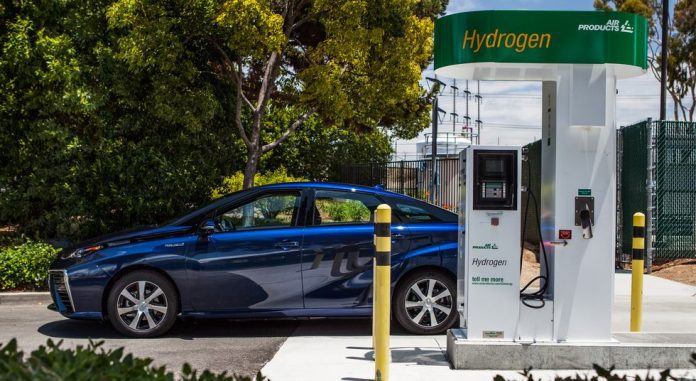The recent uptake of cars based on hydrogen fuel cell technology is declining in the United States, especially in California, where the availability of series-produced models is high.
The Hydrogen Fuel Cell Partnership reported that companies sold only 223 new Fuel Cell Electric Vehicles (FCVs) during the first quarter of this year. This represents the slowest first quarter since 2016 and the second consecutive quarter of this kind, with a 70% drop compared to the same period last year. The Hydrogen Fuel Cell Partnership’s FCV sales data is obtained from Baum and Associates and based on sales to both fleet and retail clients.
Only two FCV models are currently available: the Toyota Mirai and the Hyundai Nexo. The Toyota Mirai is the most popular of the two, with 172 sales in Q1, a 74% decrease from the previous year. The Hyundai Nexo sold 51 units in Q1 of this year, a 22% drop year over year.
Although Honda’s Clarity Fuel Cell is no longer available, they are launching the 2025 Honda CR-V e:FCEV, a hydrogen plug-in vehicle. However, the limited availability of this model will not help the FCV segment’s declining sales.
The FCV segment faces limited car availability, high hydrogen prices, and inadequate charging infrastructure. In February, Shell declared it would close all seven California sites immediately.
While another shipment of FCVs from Japan or South Korea might temporarily boost sales in the upcoming quarters, the competition with all-electric vehicles appears one-sided, indicating that true competition never materialized. Advancements in EV technology, such as long-range capabilities and fast charging solutions that can achieve up to 80% charge in under 20 minutes, have closed the window for FCVs.
However, FCVs continue to struggle with issues like lower overall efficiency, high costs, and sparse refueling infrastructure. Despite these challenges, the cumulative sales of FCVs in the U.S. have surpassed 18,000 units by the end of the last quarter, marking a 16% increase from the previous year, with the Toyota Mirai making up nearly 79% of these figures.
At the current pace, the sale of the 25,000th hydrogen fuel cell car might not occur until late 2025.






